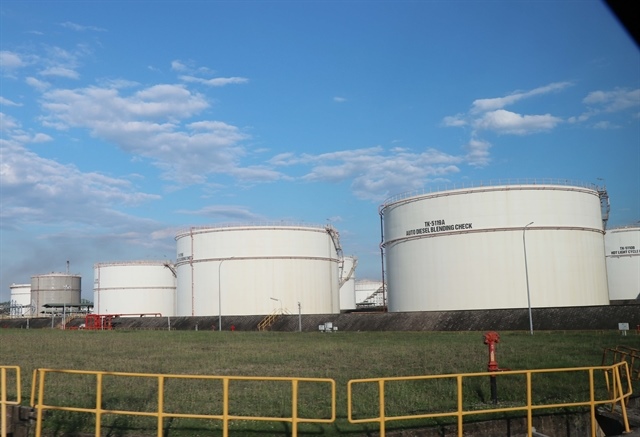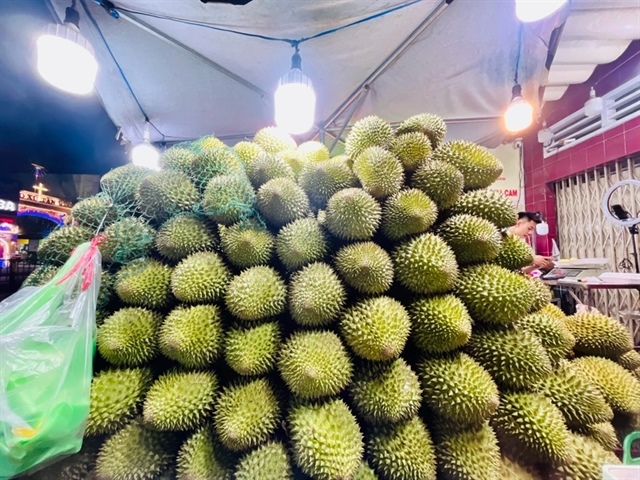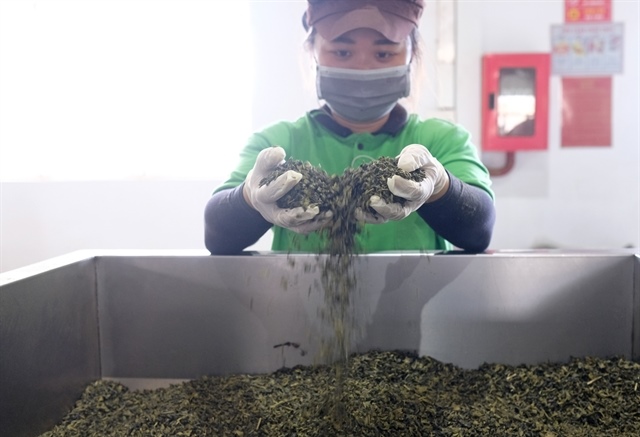Milk competition gets fierce in Vietnam
Milk competition gets fierce in Vietnam
Milk brands in Vietnam are pouring millions of dollars into promotional campaigns and the development of new products to secure their foothold in the increasingly competitive market.

The domestic milk market is seeing an explosion in the range of products offered by manufacturers in their attempt to appeal to customers who are paying more and more attention to the content of their milk.
Since 2015 when Vietnam scrapped a piece of legislation setting a limit to how much a business can spend on promotions and advertising, milk brands have been unsparing in their expenditures for the activities.
According to market research companies, the advertising and promotion budget of an undisclosed top dairy producer in Vietnam in 2016 was close to VND9 trillion (US$396.48 million), of which over VND2 trillion ($88.11 million) was spent on advertising and market research, and the rest on sales promotions, exhibits and product launch.
Milk brands have also elevated investment in their distribution system and sales channels.
Vinamilk, Vietnam’s leading dairy producer, currently operates a network of over 220,000 retail outlets nationwide, while their products are sold at 100 percent of supermarkets and convenient stores in the country.
Meanwhile, rising competitor TH True Milk is taking risks by spending huge sums of money on renting locations across Vietnam to open their outlets.
“It would take a large number of sales [for TH True Milk] to make up for the costs of running these stores,” an expert from the Ministry of Industry and Trade asserted. “Perhaps TH’s goal is not as much to increase their sales as it is to promote their brand’s image.”
The organic race
While Vietnam’s milk market in the past was dominantly a two-horse race between Vinamilk and Dutch dairy cooperative FrieslandCampina, in recent years the picture has remarkably changed to include emerging big players such as TH True Milk or Nutifood, among several other imported foreign brands.
Heightened competition has prompted dairy producers to come up with new initiatives that target consumers’ demand for safe, environment-friendly products.
According to Phan Minh Tien, Vinamilk’s marketing executive, the company introduced to the market nearly 30 new products in 2016.
It was the first to launch organic dairy products that meet European standards in Vietnam.
TH True Milk is also catching up in the organic race by unveiling its first organic cow farm in north-central Nghe An Province earlier this year.
Smaller dairy brands trying to enter the infantile organic market are importing ready-made products from foreign producers.
U.S.-headquartered Abbott Laboratories last year reported VND10 trillion ($440.53 million) in revenue from the Vietnamese market alone, an increase of over VND2 trillion ($88.11 million) from the previous year.
FrieslandCampina, which owns Dutch Lady and Frisco, featured a photo of a Vietnamese woman checking its products on her smartphone in its 2016 annual report, signifying the growing importance of the Vietnamese market in the company’s global business.
The competition has proven too fierce for some producers.
Last year, French food-product corporation Danone announced the termination of its formula milk business in Vietnam under the brand of Dumex, which previously only made up around 3.2 percent of the local market.
Lagging retail prices
Despite recent drops in wholesale prices for milk in Vietnam by 5-20 percent, retail prices are still lagging at a relatively high level due to the added costs of transportation, advertising and promotion.
Take FrieslandCampina’s Dutch Baby line for example. Local consumers are still paying VND250,000-350,000 ($11-15) for a can of the powdered milk despite wholesale prices having dropped to VND180,000 ($8) a can.
Vietnam’s Ministry of Industry and Trade has announced its plan to tighten control over prices of milk and other supplementary products for children under six years of age, while requiring dairy companies to publicly list prices that are applied throughout their entire distribution network.
A ministry official advised local consumers to remain cautious toward foreign milk products ‘imported’ into Vietnam in the luggage of air passengers, as they could be fake or expired milk that had been repackaged to look authentic.
N.M.H., a seasoned buyer of such ‘luggage’ goods, said there was no guarantee of these products’ quality, given the fact that last year Japanese dairy company Meiji warned customers of fake Meiji products being sold on the black market in Vietnam.
An expert in the business has warned that foreign milk may not be suitable for consumption by Vietnamese people, as the formula offered in each country may differ depending on nutrition demands of the local population.
Increased importation of foreign cow breeds
According to Vinamilk’s marketing executive Phan Minh Tien, the firm’s milk market has been in steady growth over the past two years, with ample potentialities yet to be leverage.
An average Vietnamese consumes around 14.5 kilograms of milk a year, compared to Thailand’s 32.4 kilograms and South Korea’s 39.7 kilograms, Tien pointed out.
With such tremendous space for development, local milk producers have been making remarkable investments on increasing their production and improving milk quality through foreign cow breed imports.
In the past three years, Vinamilk has invested close to VND1.9 trillion ($83.7 million) in upgrading and expanding its farms.
The dairy producer has so far imported nearly 8,600 milk cows from the U.S. and Australia via deals worth a total of over VND595 billion ($26.21 million).
It is looking to import a further 1,500 cows from the U.S. this July.
























